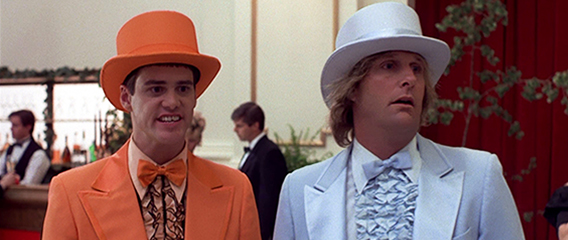A few years ago, I was preparing a costume to wear for my orchestra’s “Halloween Pops Extravaganza.” The musicians were asked to wear a festive, yet family friendly, costume to perform in. We were encouraged to be creative as there would be a contest where the audience would pick the best costume and the winner would receive a Barns and Noble gift card. If a musician chose not to wear a costume, they had to wear the contractually mandated “dress black.”
Showing up, I saw many of my colleagues in some amazing and wild outfits. I knew competition would be stiff for the prize but then, out of the corner of my eye, I saw one of my friends wearing just jeans and a t-shirt. “Aren’t you suppose to be in black,” I asked him. “No,” he said while pointing at a construction workers hard-hat resting next to his instrument. “All I need to do is put that hat on and I’m in costume. This is the only concert each year that I can play comfortably.”
It had never occurred to me to question the comfort of concert attire. I grew up watching my teachers in their tuxedoes and formal dresses, and I always assumed I would be wearing the same thing.
Every orchestra dictates a basic guideline or dress code for musicians to follow, the details of which are spelled out in the work contract. The idea is to have uniformity on stage to create a consistent look that is both elegant and respectful. For centuries now, black or white tie or tuxedo for men and long black formal dresses for women has been the standard. But over the past few decades, there have been questions among many of my colleagues as to whether or not we should reconsider our performance dress code. To complicate the situation even more, many long term members of the audience have very defined expectations as to what is proper performance attire.
Throughout my career, I have had many wonderful opportunities to perform with a wide range of fine ensembles, including symphonic, chamber, opera, and festival orchestras. Although each orchestra had similar dress codes, it was the little rules that always caught my eye. In one orchestra, women were not permitted to show any hint of cleavage, in another, some cleavage was acceptable but women wearing pants must wear a jacket that completely covered their butts. Yet in another, no sequins, gold thread, or any material that would have sheen were allowed.
Even though they all had very good reasons for each request, those same rules didn’t provide women with simple, no-variation instructions for attire that was readily available at retailers throughout the entire year. The result was it made it a bit harder to shop for “conforming” concert attire. On more than one frustrating shopping trip, I found myself wishing I could have it easy like the men in the orchestras. Their rules were just white or black tie tuxedo; nothing to second guess and nothing to make you paranoid about whether or not your jacket was covering enough of your posterior. Instead, it was as simple as could be. Lucky them.
But many of the men don’t necessarily like the tuxedos either. They tell me time and again it is restrictive, gets in the way of many instruments, and can be very costly when you have to purchase multiple jackets.
Why are orchestras still making the musicians wear 19th century outfits when the audiences are being encouraged to come in anything they want? Why should an orchestra player wear white tie and tails or black formal dresses when those that show up are in jeans?
Along those lines, it is interesting to witness how audience attire has been changing in recent times. What an audience member wears these days to a concert is vastly different to 10-20 years ago. I am no longer surprised to see audience members in ripped jeans or flip flops. Fine, the audience is finding ways to be comfortable (many times in uncomfortable seating) and the customer is always right.
As a result, this is a strong indication that it is time for musicians to rid themselves of traditional formal attire, except perhaps for a few special occasions each season. Creating a more contemporary look wouldn’t be all that hard and might remove yet another barrier for the audience. To me, creating a very neat and uniformed look without stuffiness while letting the comfort level of the orchestra be improved shouldn’t be that difficult of a task for an experienced designer.
Having everyone, audience and orchestra, comfortable would probably create a more inviting event. The audience goes to concerts to see a unified group of talent moving together, breathing together, and creating together. Introducing a respectful dress code that brings musicians up to 21st century ideals doesn’t threaten that component in any way.
Until that time comes, I’ll have to draw what satisfaction I can from watching patrons ask my male colleagues to take away their empty wine glass(yes, it would be nice to not be associated as the catering staff either).











As a loyal patron AND amateur player (male), I would love to see men liberated from the servant-wear of tuxes. I definitely prefer the black shirt/black pants combo (no tie, no jacket).
I was in college in the 70s. A fellow student had a job for which musicians (I think it was all men) were to wear leisure suits! Maybe for a classic disco tribute concert (if such things exist).